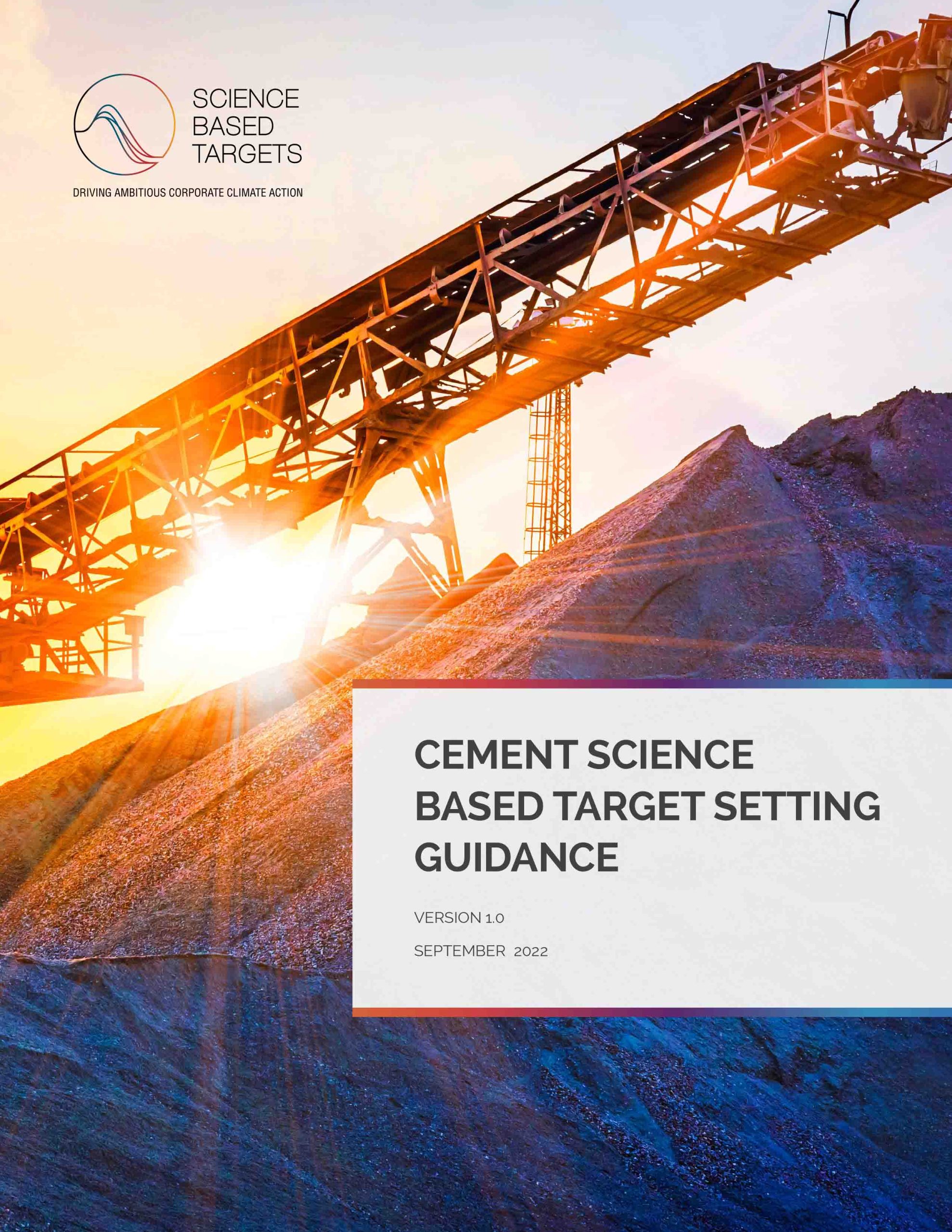Cement producers compound SBTi CO2 emissions target validations
Sources: Heidelberg Materials, Germany; CMCM staff
The parent company of key North American cement, aggregates and concrete operator Heidelberg Materials is the latest multinational producer in its sector to validate 2030 carbon dioxide emissions reduction targets according to the Science Based Targets initiative’s (SBTi)
1.5°C framework. Across U.S., Canadian and overseas operations, HeidelbergCement AG commits to reduce gross (GHG Protocol-defined) Scope 1 and 2 emissions by a combined 26.7 percent per ton of cementitious material output from a 2020 baseline, while adding a Scope 3 emissions reduction target of 25 percent. The commitments align with a previously announced goal of lowering specific net CO2 emissions to 400 kg per ton of cementitious material output by 2030—47 percent below 1990 levels.

An Expert Advisory Group penning the SBTi 1.5°C framework included representatives of HeidelbergCement, GCC and other multinational cement producers serving North American markets: Cementos Argos, Colombia; Cemex S.A.B. de C.V., Mexico; CRH Plc, Dublin; Holcim Ltd., Switzerland; and, Votorantim Cimentos, Brazil. The guidance is posted at www.sciencbasedtargets.org.
“The SBTi validation shows that our sustainability agenda not only includes the most ambitious reduction target in the cement industry, but also a realistic, measurable plan in line with the 1.5°C scenario,” adds Heidelberg Materials Chief Sustainability Officer Dr. Nicola Kimm. “We follow a clear, science-based approach, reducing our carbon footprint through the levers of product and process innovation and industrial-scale carbon capture, utilization and storage. By closing the carbon and material loops, we will lead the sustainable transformation of our sector.”
“Climate protection and the reduction of CO₂ emissions are the decisive tasks of our time, and energy-intensive industries have a special responsibility in this respect,” adds Chairman Dr. Dominik von Achten. “We are tackling these tasks at full speed and with great dedication.”
A partnership of the CDP (formerly Carbon Disclosure Project), United Nations Global Compact, World Resources Institute and the World Wide Fund for Nature, SBTi assesses and validates corporate emission reduction targets against the latest climate science. Released in 2022, the SBTi Cement Guidance is the first framework for sector operators to set near- and long-term CO2 emissions thresholds abiding the Paris Agreement’s goal to limit global temperature increase to 1.5°C above pre-industrial levels.
GCC VALIDATION
GCC S.A.B. de C.V., a cement and concrete producer with operations in Mexico and the U.S., has also attained SBTi validation for its greenhouse gas emissions target, drawn with an eye keeping global temperature increases below 2°C this century. The producer aims for respective 30.7 percent and 57 percent reductions of Scope 1 and 2 emissions per ton of cementitious material output by 2030, compared to a 2015 baseline, plus a 37.5 percent lowering of absolute Scope 3 GHG emissions from use of sold products within the same timeframe.
Metrics in the SBTi validation match the sustainability performance target (SPT) of the $500 million Sustainability-Linked Bond that GCC issued in January 2022. An independent reviewer will verify the target annually, with performance results posted at www.gcc.com.
“A laser-focus on our climate change strategy and emphasis on reducing carbon dioxide emissions is a testament to our commitment to creating a sustainable future,” notes GCC Vice President of Sustainability and Environment Gina Lotito. “While we celebrate our achievements, we acknowledge that there is still much work to be done and remain steadfast in our mission.”
Related articles
Cemex affirms 2030 CO2 emissions target progress with auditor SBTi
Holcim aligns 2030 climate targets with SBTi 1.5°C framework